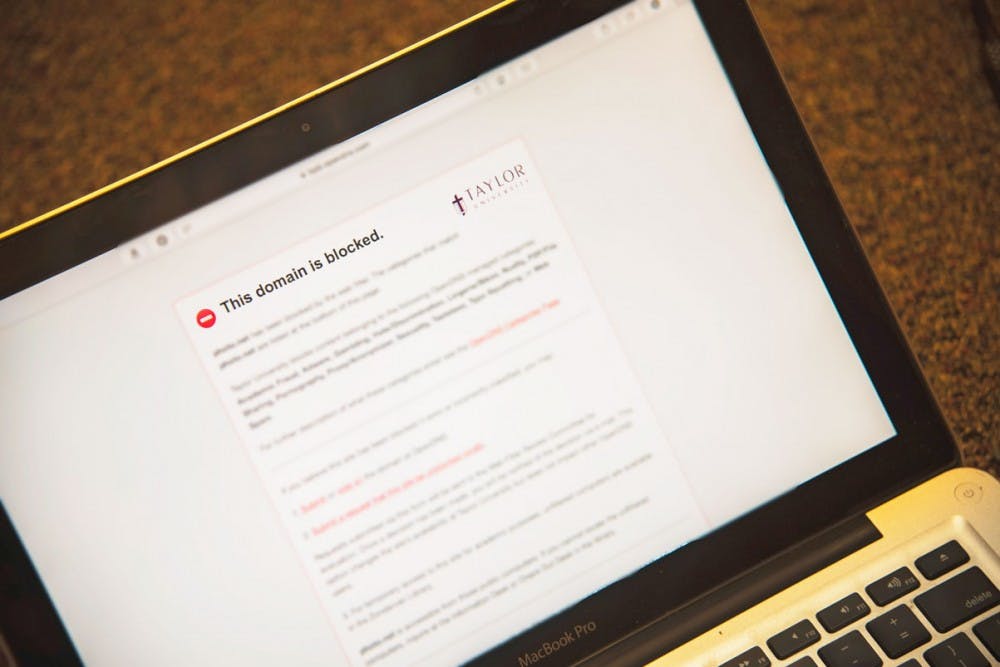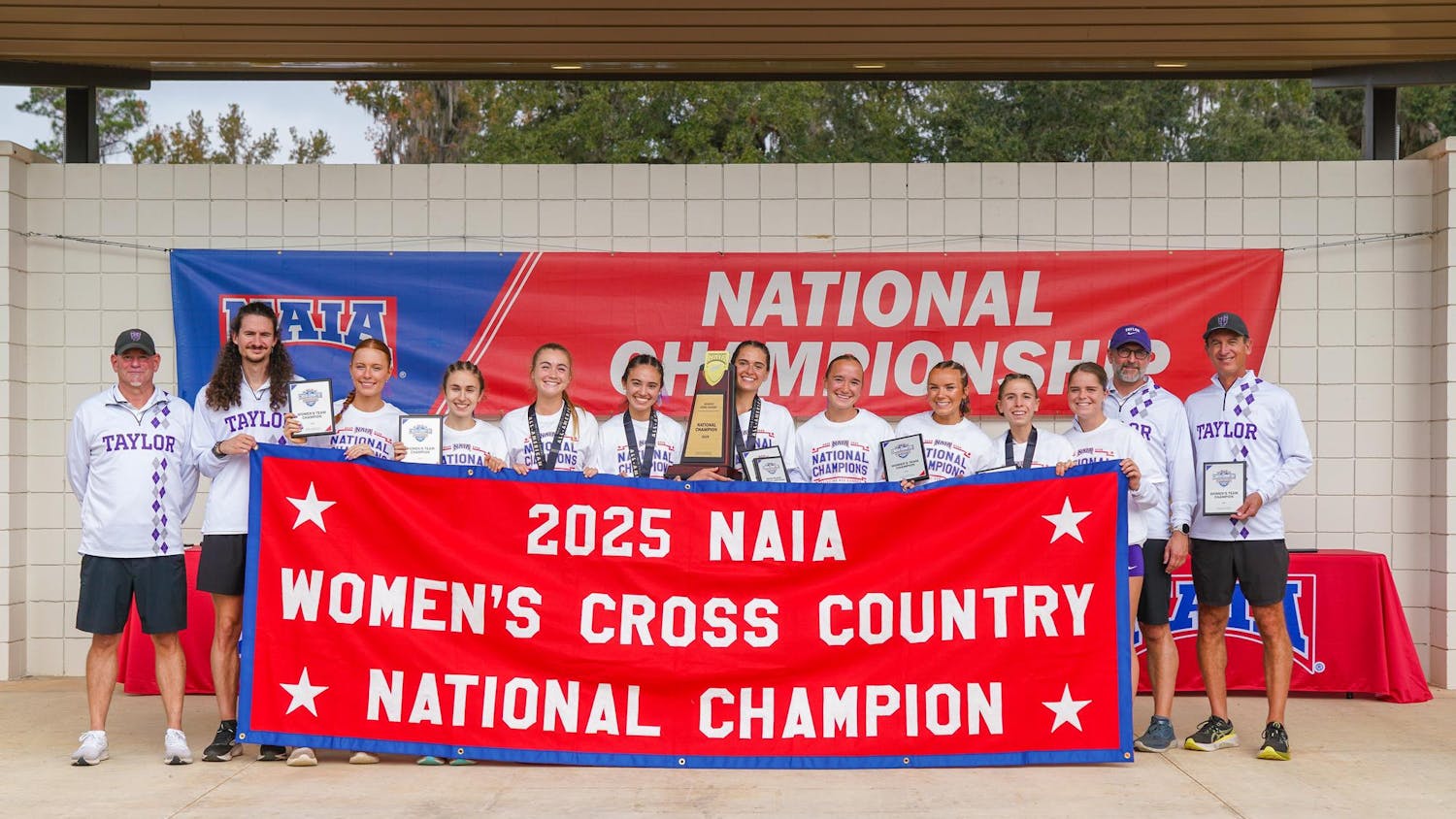By Becca Robb | News Co-Editor
She needs new underwear, and she needs it now. But instead of finding the perfect fit from Victoria's Secret, she finds herself stuck on a "Blocked Domain" page.
For over 15 years, Taylor has used web filtering to supervise web content on campus Wi-Fi. Taylor's administration decided to start filtering once the residence halls were outfitted with wireless internet.
When it comes to Victoria's Secret and other blocked websites, Chief Information Officer Rob Linehan pointed to the LTC as the main reason for filtering.
"It's really a community decision," said Linehan. "It's just to honestly help people with their accountability. You can always use an unfiltered PC in the library."
Taylor subscribes to a filtering service called OpenDNS, which sorts websites into various categories, such as gambling, pornography and peer-to-peer. Taylor then chooses which of the categories to filter.
Linehan, T.R. Knight and Steve Elwood from Information Technology (IT) review any requests to unfilter websites. Their first step is to check the site's category on OpenDNS.
"If it's categorized as nudity or gambling or something, we don't review it," said Knight, Director of Enterprise Infrastructure. "We leave that to the company that we're paying this subscription. If (a category label) comes up that seems incorrect . . . then we would review it and decide."
Not only does the filter block out inappropriate websites, but it also maintains an antivirus system. Students with malware on their computers pose a security risk by potentially giving hackers a door into Taylor's system.
"Occasionally when students are coming back from the summer, they'll find that their computers have been infected with a trojan or a botnet or something," said Infrastructure Service Manager Elwood. "OpenDNS helps to block that."
But the filter is not all-encompassing. Elwood said students have always found ways to get around the filter, from switching on their 4G networks to using dial-up in the early 2000s.
When students abuse the system, both the students and their hall director are notified. Students are immediately blocked from visiting any non-Taylor website until they contact their hall director and remove the offending application.
"That conversation feels important," said Olson Hall director Lisa Barber. "I haven't had many. But it also feels like some people didn't know."
Recently, an app called Popcorn Time has generated malware woes for several Taylor students. Popcorn Time allows users to watch movies or TV shows for free, but certain items are illegal and may incur consequences.
"The movie industry is starting to sue individuals using Popcorn Time," Elwood said. "They're actually going out to universities and saying, 'I want to know who that is, because we have a lawsuit that is pending against them now' . . . We really don't want that happening to our students."
Cassidy Grom contributed to the reporting for this article.





